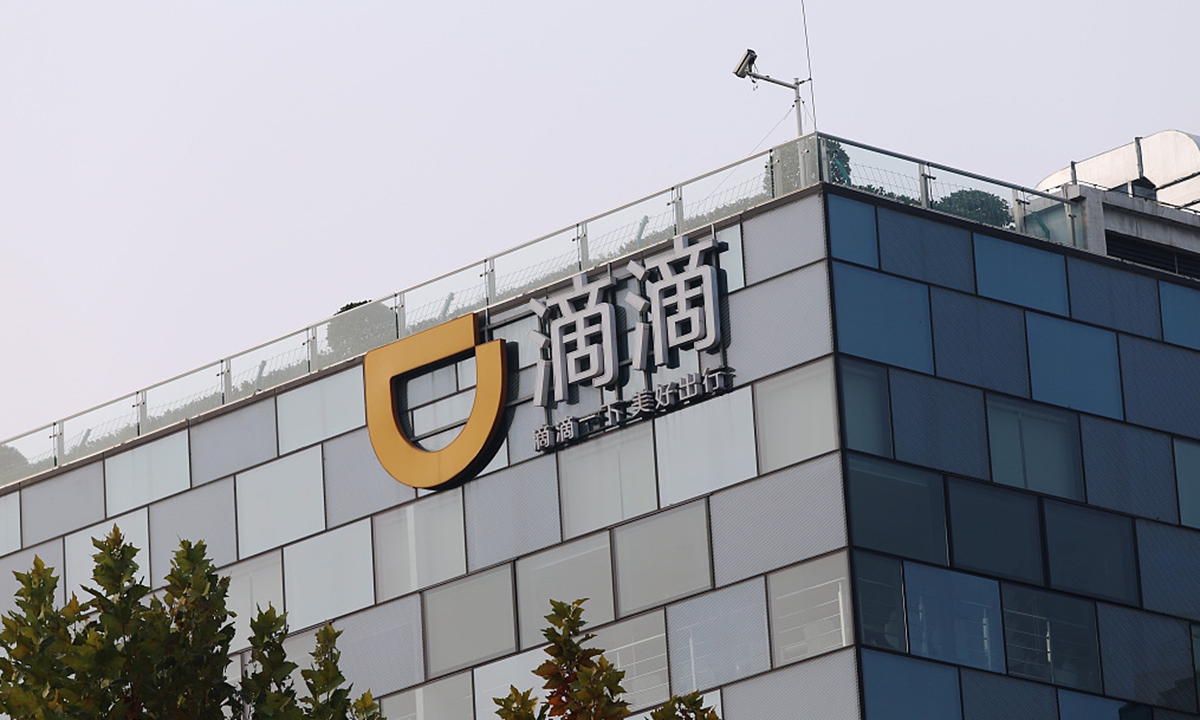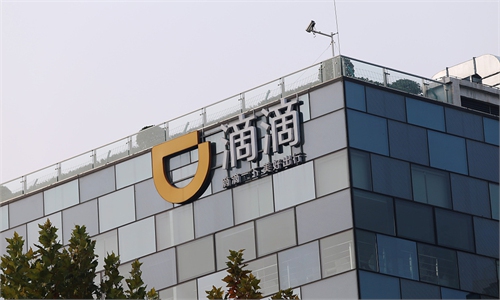The delisting of Didi will have no major impact on China's platform economy: analysts

The headquarters of DiDi in Beijing Photo:VCG
Chinese ride-hailing giant, Didi Chuxing, said it will delist from the New York Stock Exchange (NYSE) after securing approval from its shareholders at a Monday meeting.
The delisting of Didi will not have a big impact on the operation of the company and the overall development of China's platform economy, analysts said.
In an extraordinary general meeting held on Monday, 96.26 percent of shareholders voted in favor of delisting Didi's American Depositary Shares (ADS) from the NYSE, the company said.
It plans to file a Form 25 with the US Securities and Exchange Commission on or after June 2 to delist its ADS.
The company has begun the process of delisting from the NYSE last December, after the company was slapped with a cybersecurity review by China's cyberspace regulator that overshadowed its IPO.
The company got listed in the US last June without the approval of Chinese regulatory authorities, sparking concerns that the information of hundreds of millions of Chinese users would be leaked endangering China's national security.
After the delisting, Didi will probably seek to be listed in Hong Kong and will still be able to carry out business vigorously with a great potential for development, Liu Dingding, a Beijing based veteran market analyst, told the Global Times on Monday.
The delisting of Didi will not have a big impact on the outlook of China's platform economy on the whole which is expected to develop in a healthy way and embrace more pro-growth measures after Chinese authorities have fined-tuned its supervision of the platform economy, Liu said.
"There have been a lot of rectifications and antitrust investigations on the internet industry in the past years which have caused some disruption on the capital market. However, the regulations are meant for the healthy growth of that sector and will set up a stronger the internet technology industry for the long term," Liu remarked.
Since the end of 2020, China has mounted an anti-monopoly crackdown campaign targeting the internet sector, as its rampant expansion in recent years has caused risks in cyber security and market disorder with monopolistic behaviors.
Recently, Chinese authorities have fined-tuned their supervision of the platform economy.
At the meeting of the Political Bureau of the Communist Party of China Central Committee in April, authorities pointed out that platform economy must develop in a healthy way.
"Rectifications for the platform economy will be completed, regular supervision will be initiated and specific measures to support its standardized and sound growth will be unveiled," officials agreed at the meeting.
Authorities have pledged to support domestic and overseas listings by companies in the platform and digital economies that comply with laws and regulation and expect the sector to remain a vital contributor to economic growth.

